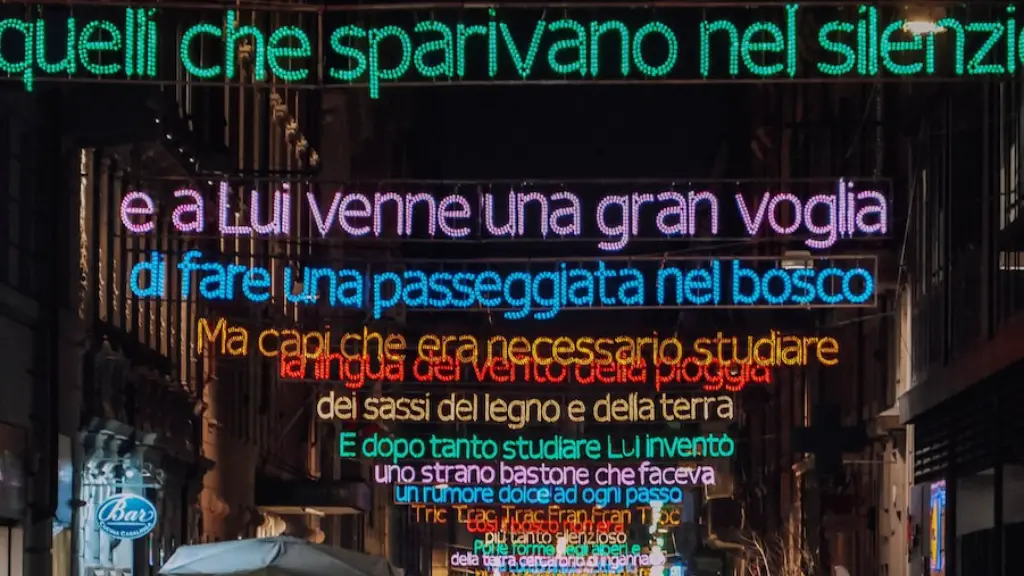Introduction: What is Children’s Poetry?
Children’s poetry is a genre of literature specifically written for and about children. It uses language, imagery and other literary techniques to evoke emotion, provide entertainment and impart understanding. Children’s poetry is based on the natural curiosity that children have about their own world and the world around them. It can help them explore their own imaginations, learn to express themselves through the written word and bring joy to the reader.
The Power of Poetry
Poetry has the power to move and influence people. It can take us to faraway places, or make us feel like we are in our own backyard. It can motivate us to take action and inspire us to follow our passions. For children, poetry can be an outlet for their emotions and a way for them to make sense of the world in their own unique way. Children’s poetry can also help develop language and literacy skills, encouraging them to use their imagination, gain confidence in their own writing, and ultimately become better readers.
Types of Children’s Poetry
Children’s poetry is typically divided into two main categories: classic and modern. Classic poetry is typically classic works in the public domain, like classic nursery rhymes or folk songs. Modern poetry often takes on a more creative or experimental form and is focused more on the child’s individual experience. Examples include poetry that is written to be read aloud or shared with an audience, or poetry that encourages children to play with language and explore their own ideas. In both cases, the main goal is to create an enjoyable, meaningful experience for the child.
The Benefits of Poetry for Children
Poetry can be a powerful tool to nurture children’s cognitive, social and emotional development. By exposing children to different forms of poetry, they can gain an appreciation for the beauty of language and the power of expression. Poetry is also a great way to introduce children to concepts such as rhyming words, syllables and rhythm. Through working with poetry, children can learn to think analytically, express themselves freely and develop their reading skills.
Popular Poets for Children
Some of the most popular poets for children are Dr. Seuss, Shel Silverstein, Robert Frost and Emily Dickinson. These poets created works of art that have stood the test of time, providing laughter, inspiration and education to children around the world. There are also many contemporary poets, such as Liz Rosenberg, Jackie Kay and Natalie Merchant, who continue to create exciting new works that appeal to young readers.
how to Encourage Children to Enjoy Poetry
The key to encouraging children to enjoy poetry is to make it fun. Reading aloud is a great way to get children excited about poetry, as it allows them to use their imaginations to bring the words and stories to life. There are also many activities that children can do with poetry, such as writing their own poems, illustrating poems, playing games with rhyming words or creating unique structures with words.
Why is Poetry Important?
Poetry is an important part of a child’s development because it helps to foster the imagination, encourage issue-based thinking, and teach language and communication. Poetry is also a great way for children to express feelings, share stories, and connect with other people. By understanding and exploring the world of poetry, children can gain valuable life skills and learn how to communicate in meaningful ways.
The Arts and Poetry
The arts play an important role in the development of a child’s appreciation of poetry. Through visual arts, such as painting, drawing and sculpture, children can explore their own creative sides and use their imaginations to express themselves. Music can also be used to explore the emotions and meanings behind poetry, by allowing the words to come alive in a rhythmic and melodic way.
Using Technology for Poetry
Technology is becoming a more and more common way for children to explore poetry. Through apps and websites, children can find a large selection of poems, from classic works to modern day interpretations. They can also use online tools to help them create their own poetry, or to learn about the different techniques and styles of poetry. Technology also allows children to share poetry with their peers, thereby encouraging collaboration and discussion in a safe and supportive environment.
Inspiring Children to Create Their Own Poetry
Creating their own poetry can be a great way for children to express their creativity and show that they have something to offer the world. It is important to provide opportunities for children to write their own poetry, and to encourage them to explore different genres and styles. Teaching children the basics of writing poetry can be a fun and creative experience, and can help children build the skills and confidence needed to create their own works.
Encouraging a Love of Literature
Reading poetry is a great way to encourage a love of literature in children. By introducing them to different types of literature, from classic works to modern interpretations, it can help children to develop a greater understanding of what literature is and what it can do for them. Additionally, it can help to instill a sense of pride in writing and in their own personal creativity.
Conclusion
Children’s poetry is an important genre of literature that can be used to foster creativity, expressive language and critical thinking in children. It can be a great way to encourage children to explore their own imaginations and gain appreciation for the beauty of language. By introducing children to different types of literature, providing opportunities to create their own poetry, and encouraging a love of literature, we can help ensure that the next generation will be inspired by the power of poetry.



